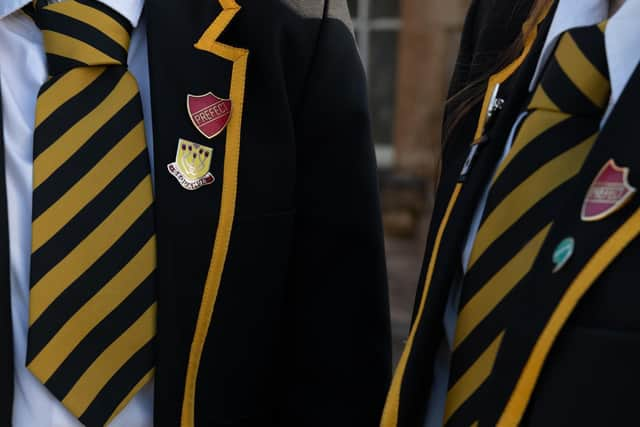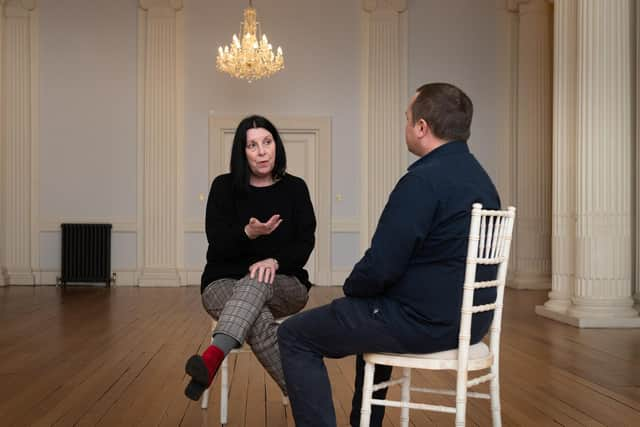An island's schools links with the opium trade and cotton plantations of America unravelled
Former Rector Frances Murray made the remarks in a BBC Alba one-off special that examines the origins of The Nicolson Institute in Stornoway, which this year celebrates its 150th anniversary.
The school was founded on land donated by former island owner James Matheson, founder of Jardine Matheson shipping company which became the largest opium trader in the Far East in the the mid-19th Century.
Advertisement
Hide AdAdvertisement
Hide AdThe role of the six Nicolson brothers who gave the school their name is also examined in Sequamur: Stèidheachadh Sgoil MhicNeacail, with their fortunes also made in shipping in China and the cotton plantations of Mississippi, with it estimated they gave up to £25m to the school at today’s values.


The programme comes amid a wider discussion at the school over how its history should be addressed. A board detailing the Nicolson family history was removed by former rector Frances Murray around two years ago given it made reference to the view of one brother, who fought with the Confederate Army in the American Civil War, who “had no faith in the black man of being his own master”.
Ms Murray said: “I think there is probably an element of shame that an organisation you work for and have been deeply invested in has this in its history.“But you’ve also got to balance it with all the positives in the history of the school as well, of which there are many in the 150th year.”
Matheson, who bought Lewis in 1844, was a school trustee alongside Alexander Nicolson, who sailed to the Far East as an engineer on the Fiery Cross, an armed opium vessel owned by Jardine Matheson.
Nicolson set up a shipyard in Shanghai in 1862 following the Opium Wars when Britain and France fought for the right to trade the drug. He left a significant sum for the provision of education in Stornoway in his will with a new school, which became the Nicolson, created.


Second eldest brother Colin John Nicolson left Stornoway in the early 1850s for New Orleans, where he first worked as a cotton factor with his job likely involving the sale and purchase of enslaved people.
After fighting for the Confederates during the American Civil War, he bought a plantation and amassed huge wealth and prestige among his peers. When he died in 1890, he left over $40,000 in his will at a time when the average income was around $330 a year.
He left a large inheritance to his brother, Kenneth, who went on to run a plantation at Copiah County for 30 years and played a major part of the school’s development in the early 20th Century
Advertisement
Hide AdAdvertisement
Hide AdJennifer Cairns, current rector, said: “People are very proud of this school and rightly so. For me it’s about learning from the past, acknowledging some of the quite dark things about the history but also acknowledging the real good that’s come from that legacy.”
Sequamur: Stèidheachadh Sgoil MhicNeacail is available on BBC iPlayer.
Comments
Want to join the conversation? Please or to comment on this article.